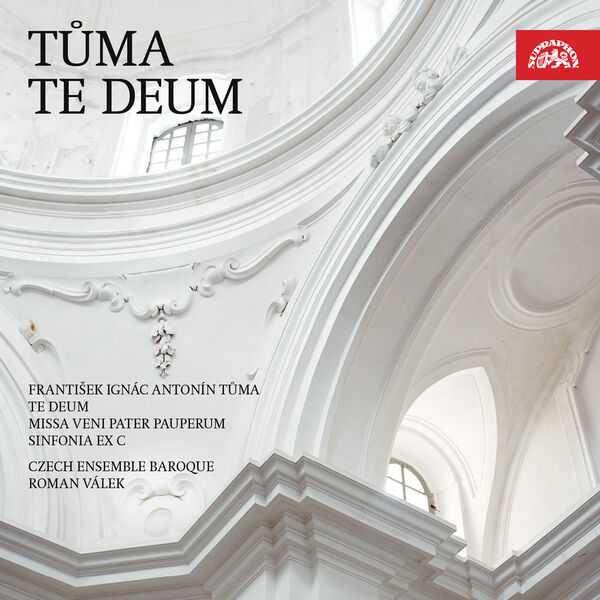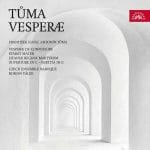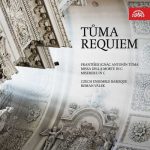

Composer: Frantisek Ignác Antonín Tùma
Performer: Czech Ensemble Baroque
Conductor: Roman Válek
Format: FLAC (tracks)
Label: Supraphon
Catalogue: SU43152
Release: 2022
Size: 992 MB
Recovery: +3%
Scan: yes
Te Deum
01. I. Te Deum laudamus. Allegro
02. II. Te gloriosus. Andante
03. III. Tu devicto mortis. Allegro
04. IV. Trombe sona
05. V. Te ergo quaesumus. Grave
06. VI. Aeterna fac. Allegro
Sinfonia ex C
07. I. Allegro
08. II. Andante
09. III. Menuetto – Trio
10. IV. Allegro II
Missa Veni Pater Pauperum
11. No. 1, Kyrie eleison. Andante
12. No. 2, Christe eleison
13. No. 3, Kyrie eleison. Grave – Andante
14. No. 4, Gloria in excelsis Deo
15. No. 5, Laudamus te. Allegro
16. No. 6, Domine Deus
17. No. 7, Qui tollis peccata mundi. Largo
18. No. 8, Qui sedes ad dexteram Patris. Allegro
19. No. 9, Credo
20. No. 10, Et incarnatus est. Andante
21. No. 11, Et resurrexit
22. No. 12, Sanctus. Largo – Allegro
23. No. 13, Benedictus. Andante
24. No. 14, Osanna in excelsis
25. No. 15, Agnus Dei. Largo
26. No. 16, Dona nobis pacem. Allegro
Czech Ensemble Baroque’s first recording dedicated to František Ignác Antonín Tůma (Requiem, Miserere) confirmed his firm position among Europe’s major late-Baroque composers. A pupil of the renowned Viennese master J. J. Fux, his music is characterised by immaculate refined counterpoint, yet he also embraced and brought to bear elements of the incipient Galant style.
Dating from three different phases of his life, the three pieces featured on the present album map Tůma’s artistic development. The grandiose Missa Veni Pater Pauperum, written in 1736 for the Schottenstift, a Benedictine abbey in Vienna, is from the time when he served Count Franz Ferdinand Kinsky, who had provided him with a thorough education. The festive 1745 Te Deum, scored for a similarly extensive ensemble, was composed for the Stift Wilhering, a Cistercian monastery in Upper Austria, which performed it on multiple occasions within the celebrations of the Feast of Corpus Christi. As regards the Sinfonia ex C, Tůma most likely conceived it towards the end of his days, when he lived in seclusion at the Premonstratensian monastery in Geras, Lower Austria.
The three festive pieces, recorded for the very first time, attest to Tůma’s being a composer richly deserving of special attention.



